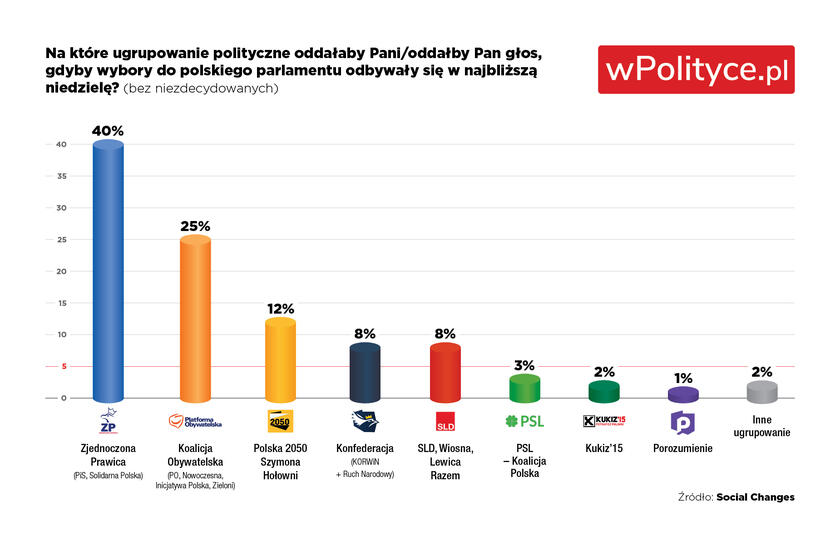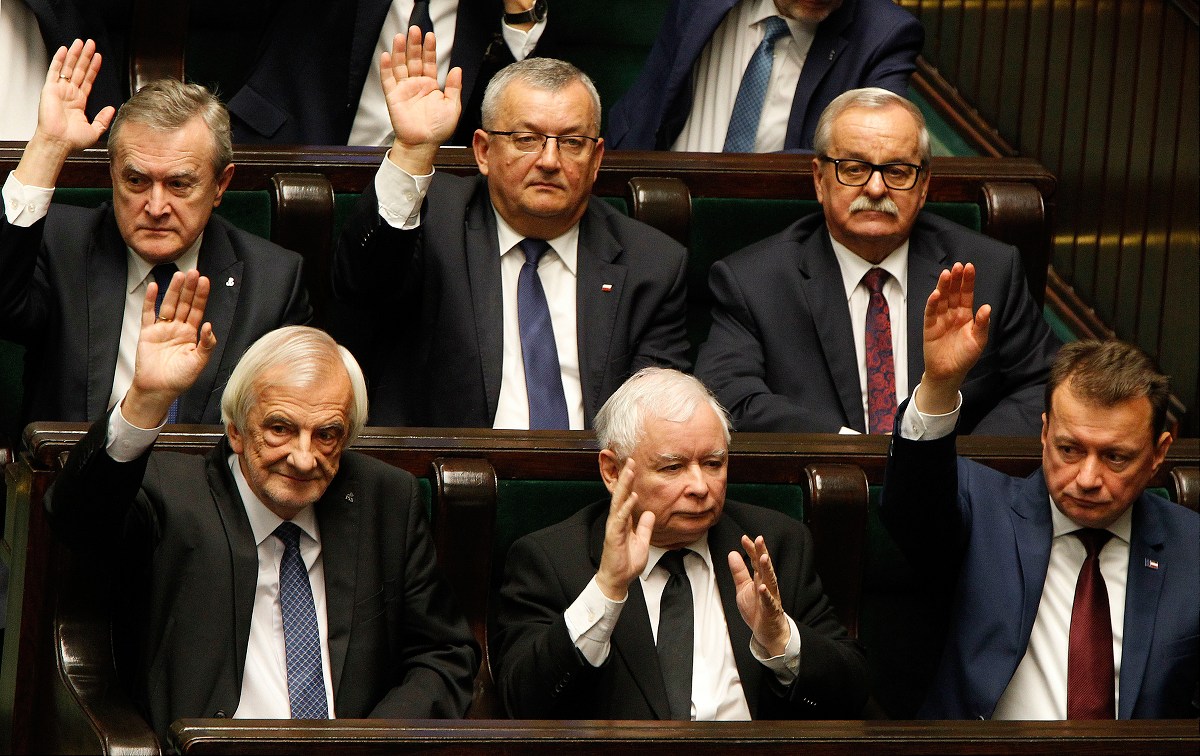The latest polls carried out by the Social Changes agency show Law and Justice (PiS) with the support of 40 percent, its highest rating for nearly two years and an increase of 4 percent on the previous poll.
According to Artur Wróblewski, a political scientist, this shows that voters feel the ruling party is passing the test posed by the ongoing conflict in Ukraine and that this is partly due to its surefooted handling of energy and migration policies.
“Poland has been able to become emancipated from gas and energy blackmail,” Wróblewski said, but also claimed that support for the government now justified the robust protection of the country’s external border.
“The government was right to protect Poland’s border with Belarus against illegal migration as a weapon in hybrid warfare. During the Ukraine crisis, Poland showed it is prepared to admit real refugees while shutting the door on pseudo refugees weaponized by the Lukashenko regime,” Wróblewski added.

Blue – United Right (Law and Justice – PiS), Orange – Civic Platform (PO), Yellow – Poland 2050, Dark blue – Confederation, Red – the Left, Light green – Polish People’s Party (PSL), Dark green – Kukiz’15, Purple – Agreement, Gray – Other (Source: Social Changes for wPolityce.pl)
While Wroblewski feels that migration and energy are the most important factors, he acknowledges that the government’s help for business during the COVID crisis which stopped unemployment rearing its head was also met with approval by voters.
However, the economy could be a source of future problems for the government as a result of inflation and pressure on public finances.
Asked whether the poll was a good predictor of what might happen in the election next year, Wróblewski is not convinced. He feels the economic situation and levels of social satisfaction could both be in a very different place. Those who are seen to have done well in crisis and wartime situations do not always go on to win elections. “The ruling camp needs to remember that while Churchill won the war against Hitler he lost the election that followed that victory.”
Wróblewski was also asked whether it was likely that there would be an early election this year. The academic feels that it may be tempting because of Poland’s enhanced standing on the international stage and the credibility gained by the government over energy and migration issues, and warned that waiting for a year could change things. “George Bush had approval ratings of 80 percent following his victory over Iraq in Kuwait” but went on to lose the election 18 months later, the political scientist warned.
The academic does not feel that the unity of the ruling camp is threatened. He sees divisions between the core of Law and Justice and the more radical grouping led by Zbigniew Ziobro that is part of the ruling block as something natural with Ziobro, the justice minister, playing the role of outrider, attracting voters from the radical right “Confederation.”





